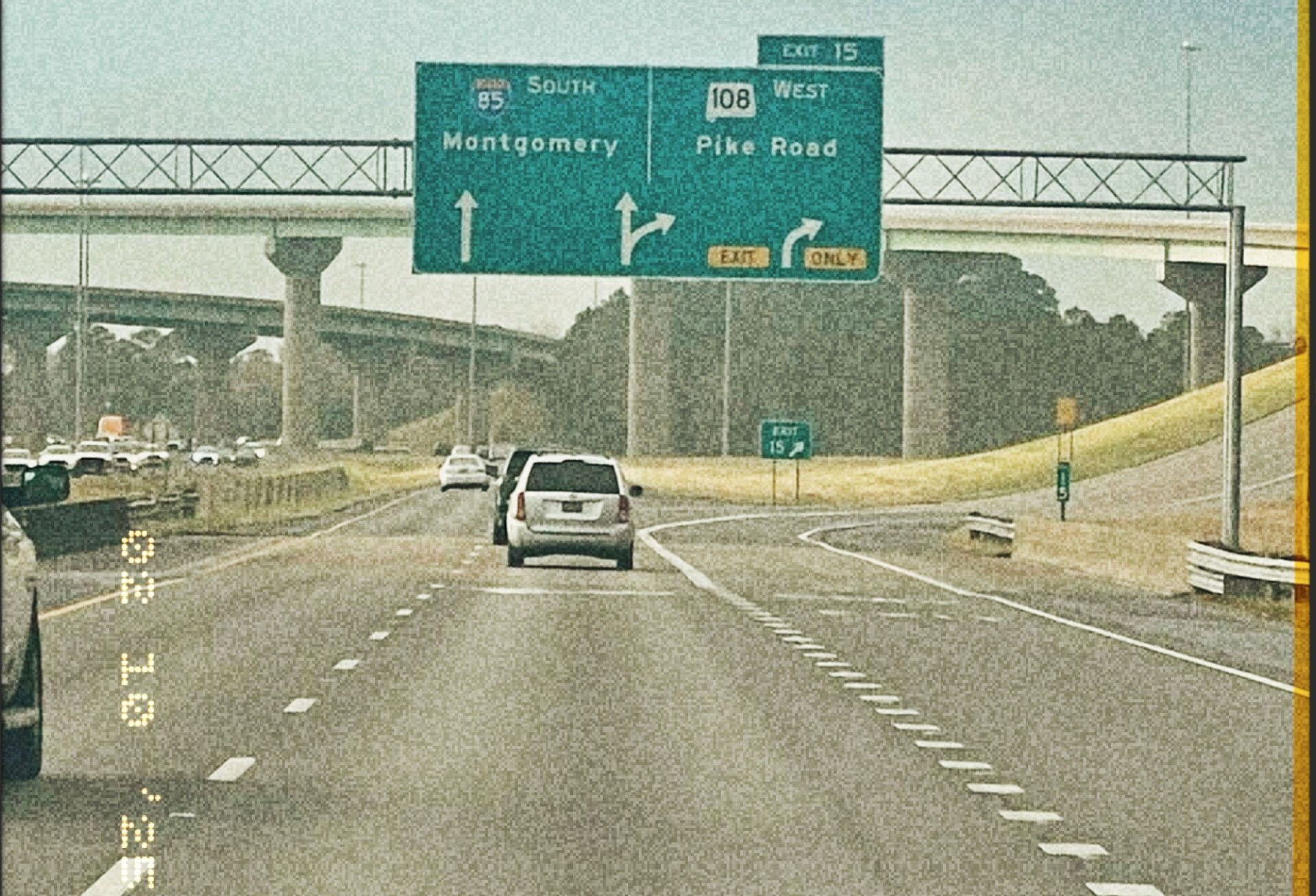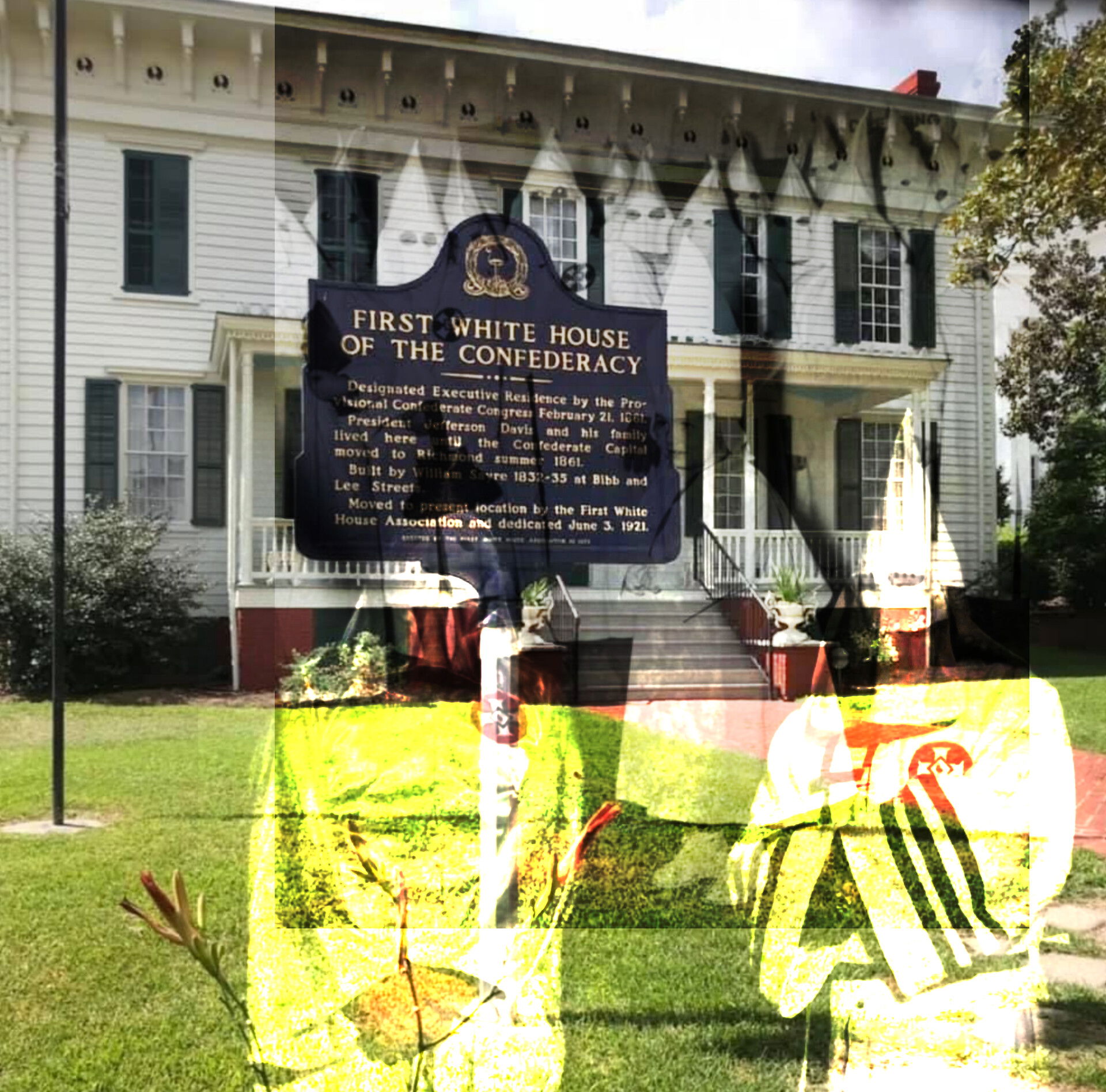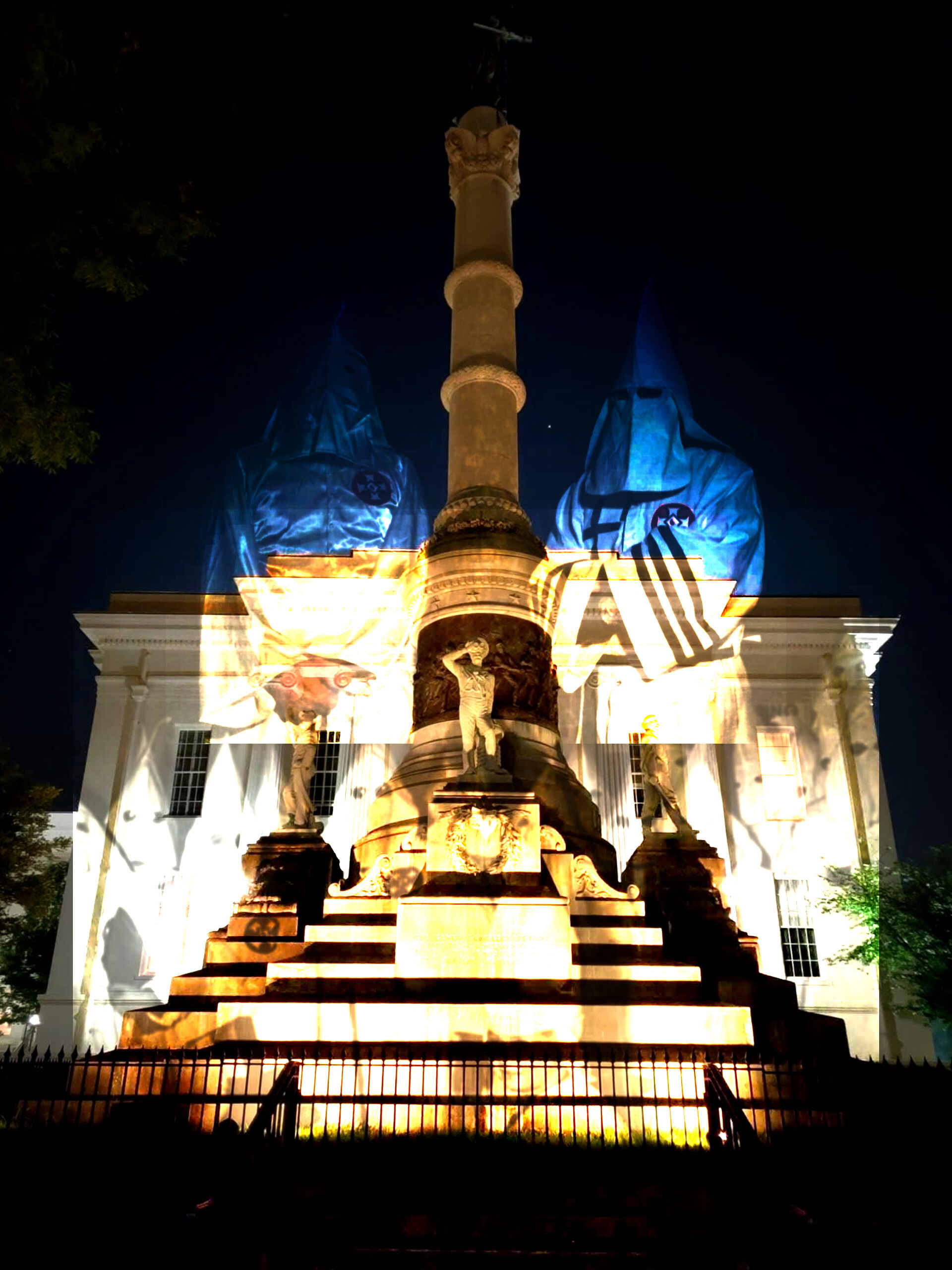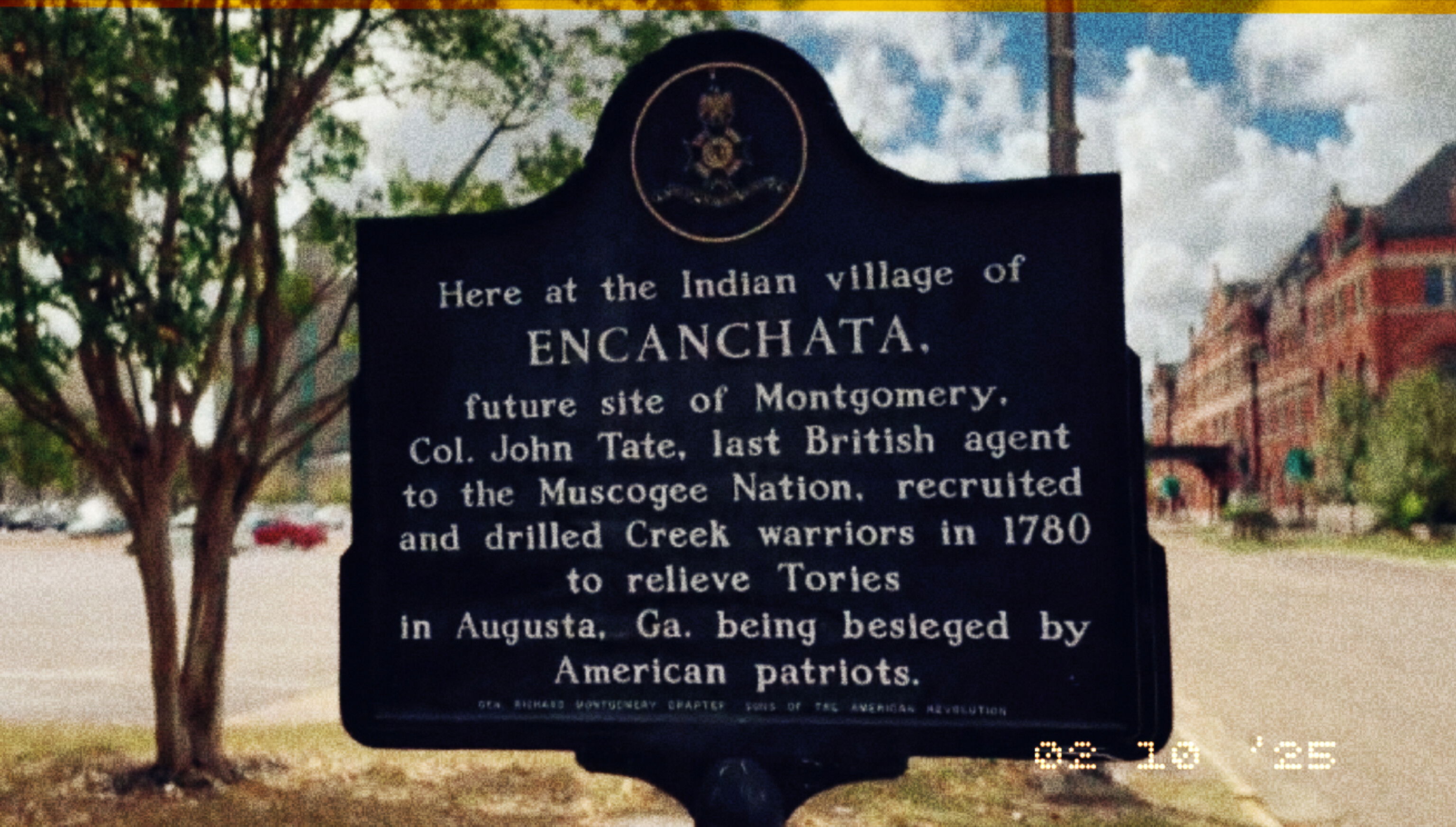CORY SPEARS – “THE STRANGEST ANGEL” – MATERIALIZES IN MONTGOMERY WITH A FOUR‑DIMENSIONAL CALL TO RE‑SHAPE AMERICA STARTING WITH ALABAMA

By Maya L. Rivera, Senior Political Correspondent
October 2, 2025, 11:38 a.m. CDT
MONTGOMERY, Ala. – In a scene that seemed ripped from a science‑fiction novel, self‑styled visionary Cory Spears, who has cultivated an online persona as “The Strangest Angel,” appeared before a packed crowd in downtown Montgomery on Thursday morning.

With a laser‑pointed slide deck, a booming voice that oscillated between chant and sermon, and a series of “four‑dimensional” metaphors linking contemporary Alabama politics to pivotal moments in American history, Spears delivered what many are already calling a “shock‑and‑awe” address that may reshape the state’s political calculus.
Spears opened with a startling declaration that reverberated through the historic Capitol Square:
“Maw Maw Kay Ivey, Alabama is tired and needs change TODAY!”
His words were met with a mixture of applause, murmurs of agreement, and a palpable undercurrent of tension.
What followed was a rapid‑fire indictment of the state’s entrenched power brokers, a critique of the legal establishment, and a visionary projection of a multidimensional future for the Deep South.

THE MESSAGE: A FOUR‑DIMENSIONAL MAP OF AMERICA
Spears framed his speech around what he described as a “four‑dimensional view of America,” a conceptual model that collapses chronological, geographical, political, and metaphysical vectors into a single, mutable plane.
According to him, the present moment—October 2, 2025—exists at the nexus of a historic lattice that includes:
| Date | Event | Symbolic Relevance to Alabama |
|---|---|---|
| 1835 – Battle of Gonzales | First shots of the Texas Revolution | Rebellion – a reminder that defiance can ignite systemic change. |
| 1919 – President Woodrow Wilson’s Stroke | Sudden collapse of a leader | Vulnerability – an alert that even the most powerful can be felled. |
| 1950 – Debut of “Peanuts” | Comic strip that humanized everyday anxieties | Narrative Power – stories shape public consciousness. |
| 1967 – Thurgood Marshall’s Swearing‑In | First African‑American Supreme Court Justice | Justice Re‑Imagined – a call for equitable representation. |
| 1780 – Hanging of Major John André | Execution of a spy | Security – vigilance against covert threats. |
| 1959 – Premiere of “The Twilight Zone” | Groundbreaking television episode “Where Is Everybody?” | Perception – reality is often deeper than it appears. |
“Every October 2nd in our collective memory is a portal,” Spears told the audience, gesturing to a swirling graphic of overlapping timelines.
“When you align the battle of Gonzales with the crisis in Montgomery, you see that the same restless energy that sparked Texas’s fight for independence is now demanding Alabama’s own emancipation—from complacency, from corruption, from the very notion that we must accept the status quo.
”He went on to connect these historical anchors to present grievances: the perceived inaction of Governor Kay Ivey’s administration, the “raggedy” state of the judiciary, and the opaque legal network that includes heavyweight attorney Alexander Shunnarah.
“I called every elected official and even the big law firms—no one answered. The few who did were so nasty I had to meet fire with fire,” Spears recounted, his voice oscillating between fury and a dark humor.
“That is the interdimensional being’s perspective—when the fourth dimension collapses, you either become the observer or the observed.”

REACTIONS FROM THE POLITICAL CLASSROOM
The speech has already generated a cascade of commentary from state legislators, political analysts, and civil‑society leaders. While some dismiss Spears as a “performance artist” with a flair for theatrics, others argue that his blending of historical consciousness with contemporary critique underscores a deeper, systemic frustration among Alabama’s electorate.
George Friedman, who was present at the event, praised the “courageous framing” of the address.
“Cory Spears tapped into a reservoir of collective memory that many of us in the legislature have neglected.
By juxtaposing Wilson’s stroke with our own leadership crisis, he forces us to confront the fragility of power. Whether you agree with his style or not, the core message—‘Alabama needs change now’—resonates.
”Governor Kay Ivey’s press secretary, Gina Maiola, may need issue a brief response soon but no No specific rebuttal to Spears’ accusations of neglect or “raggedy” governance was offered.
Political analyst Jolene Hubbs , professor of Summersell Center for the Study of the South at the University of Alabama, placed Spears’ performance within a broader trend of “hyper‑localized myth‑making.”
“We’re seeing a proliferation of charismatic, quasi‑spiritual figures who use digital media and public staging to fuse history with political agitation,” she said. “Spears is a case study in how narrative devices—like the ‘four‑dimensional map’—can galvanize a dispersed audience into collective action.
His reference to Darwin’s quote, ‘A man/woman who dares to waste one hour of life has not discovered the value of life,’ reframes the political debate as an existential one, urging citizens to see voting and civic participation as a moral imperative.”
THE LEGAL AND ECONOMIC CONTEXT
Spears’ criticism of attorney Alexander Shunnarah—who heads a statewide litigation firm known for representing plaintiffs in wage‑and‑hour and consumer‑protection cases—highlights a simmering tension in Alabama’s legal ecosystem.
Shunnarah, who has been on the firm’s roster since 2008, declined an interview, but his office confirmed that they “receive a high volume of outreach from community activists and are evaluating ways to improve accessibility.”
Economists note that Alabama’s unemployment rate is 2.9% — but Spears and others proved it is currently 4.2%—has plateaued despite national recovery post‑COVID‑19.
The state’s “shutdown” reference in Spears’ speech, citing “imminent layoffs” tied to the lingering effects of the previous administration’s fiscal policies, aligns with data from the Alabama Department of Labor, which projects a modest dip in job growth for the next quarter.
“We cannot ignore the fact that many Alabamians are living paycheck‑to‑paycheck,” said Catherine Blake, senior economist at the Birmingham‑based Southern Economic Forum.
“Spears’ rhetorical call for change is underpinned by real economic stressors—rising healthcare costs, stagnant wages, and under‑investment in infrastructure.
The challenge for legislators is translating this emotional momentum into concrete budgetary reforms.”
THE SYMBOLISM OF “THE STRANGEST ANGEL”
Beyond the political critique, Spears’ self‑designated moniker, “The Strangest Angel,” signals a shift in how modern political messengers adopt mythic identities.
Throughout history, charismatic figures have leveraged symbolic titles—“the Apostle of Freedom,” “the Prophet of Reform”—to embed their messages within a cultural mythos.
Spears’ iconography—a dark feathered cloak, luminescent wristbands, and a hovering holographic angelic visage—creates a visual lexicon that resonates with younger, digitally native demographics.
Cultural critic Maya Khan, author of Digital Prophets, notes, “Spears is not merely a speaker; he’s a performance architect.
By weaving together past icons—Marshall, Wilson, Schulz—within a futuristic aesthetic, he bridges the nostalgic yearning for heroic narratives with the immediacy of social media disruption.
The ‘four‑dimensional’ metaphor is essentially a meme in motion, designed to be clipped, shared, and repurposed across TikTok, Instagram, and the increasingly fragmented news feeds.”
WHAT HAPPENS NEXT? POSSIBLE IMPACTS ON THE 2026 ELECTION CYCLE
The timing of Spears’ Montgomery appearance—just months before the 2026 gubernatorial primary—has sparked speculation that his “shock‑and‑awe” spectacle could influence voter sentiment. Historically, outsider movements have occasionally tipped the scales in close races; the 2018 “Blue Wave” in Alabama’s Senate races was credited, in part, to a series of high‑energy grassroots rallies.
Campaign strategist Luis Martinez, who advises progressive candidates in the state, believes Spears’ message could serve as a catalyst for a more coordinated “change” platform: “If we can harness the emotional resonance of his call—‘Alabama is tired and needs change today’—and translate it into policy proposals—like universal pre‑K, Medicaid expansion, and criminal‑justice reform—we could see a realignment in the upcoming election.
”Conversely, conservative pundits warn that the spectacle may backfire, galvanizing a segment of the electorate that views Spears as a “dangerous agitator.” Radio talk‑show host and former state representative Frank Donovan warned, “We’ve seen fringe figures attract attention, but the majority of Alabamians want steady, practical governance—not theatrical prophecy.” But Spears rebuked Frank by : " Obviously, Mr. Patrick from Spongebob head has never lived in Alabama or been to the streets or seen a woman strugging to feed her kids or man that couldnt literally buy a job in Alabama but I am sure Mr. Frank lives in Fantasy Alabama so hush BUSTER YOU AINT SPEAKING FACTS "
THE FINAL NOTE: A CALL TO PONDER
Spears concluded his address with a deceptively simple invitation:
“Ponder this through the day—‘A man/woman who dares to waste one hour of life has not discovered the value of life.’ — Charles Darwin.”
He left the stage to a standing ovation, his eyes fixed on the screen displaying a stylized hourglass that seemed to melt into the background.
Whether one interprets Cory Spears as a visionary prophet, a performance artist, or simply an impassioned activist, his event in Montgomery has undeniably injected a fresh, if controversial, narrative into Alabama’s political discourse.
It underscores a growing appetite for storytelling that transcends conventional policy debates, inviting Alabamians to view their state’s challenges not merely as political problems, but as chapters in a larger, multidimensional saga.

